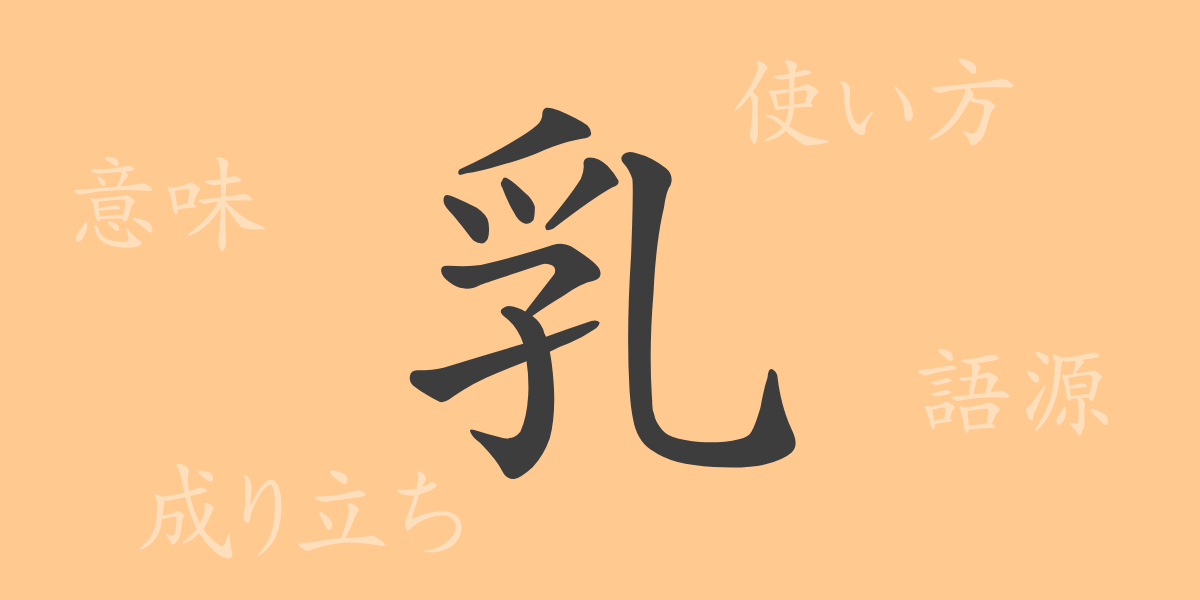In Japanese culture, Kanji deeply intertwines with rich history and meaning. One such character is ‘乳 (にゅう)’, a fundamental Kanji that plays a significant role in our daily lives. This article delves into the rich connotations and usage of ‘乳’, tracing its evolution from its origins to its modern-day applications. By exploring this character, we can gain a deeper understanding of the cultural and value systems embedded in language. Join us as we uncover the allure of ‘乳’.
Origins of ‘乳 (にゅう)’
The Kanji ‘乳’ developed from an ancient Chinese pictograph representing a breast. Initially depicting the shape of a breast, it later incorporated the radical for hand actions, symbolizing the act of milking. This character has long been cherished as a symbol of life and nourishment, reflecting its significance as mother’s milk.
Meaning and Usage of ‘乳 (にゅう)’
‘乳’ primarily denotes ‘breast milk’ and ‘breasts.’ However, it extends to terms like ‘乳児 (にゅうじ)’ for infants and ‘乳製品 (にゅうせいひん)’ for dairy products. It can also metaphorically represent nurturing figures, such as in the phrase ‘国の乳母 (くにのうば)’—a nursemaid for the nation.
Readings, Stroke Count, and Radical of ‘乳 (にゅう)’
The Kanji ‘乳’ is essential in understanding Japanese language nuances:
- Readings: On’yomi ‘ニュウ’, Kun’yomi ‘ちち’, ‘ち’
- Stroke Count: 8 strokes
- Radical: ‘乙 (おつ)’
Phrases, Idioms, and Proverbs Using ‘乳 (にゅう)’
‘乳’ is prevalent in numerous idioms and proverbs, enriching Japanese expression:
- ‘乳母車 (うばぐるま)’ – a pram or baby carriage
- ‘乳酸菌 (にゅうさんきん)’ – lactic acid bacteria
- ‘乳白色 (にゅうはくしょく)’ – milky white
- Proverb: ‘乳母の寝息をたてる’ – to sit idly by without helping
- ‘乳を離れる’ – to wean off milk, metaphorically to become independent
Conclusion on ‘乳 (にゅう)’
Understanding the meaning and cultural background of a single Kanji like ‘乳’ offers insights into the lifestyles and philosophies of its people. Symbolizing essential elements of life sustenance, ‘乳’ continues to thrive in various aspects of our language. Regular interaction with the Kanji ‘乳’ in everyday Japanese, knowing its profound implications, enriches our respect and comprehension of language.

























